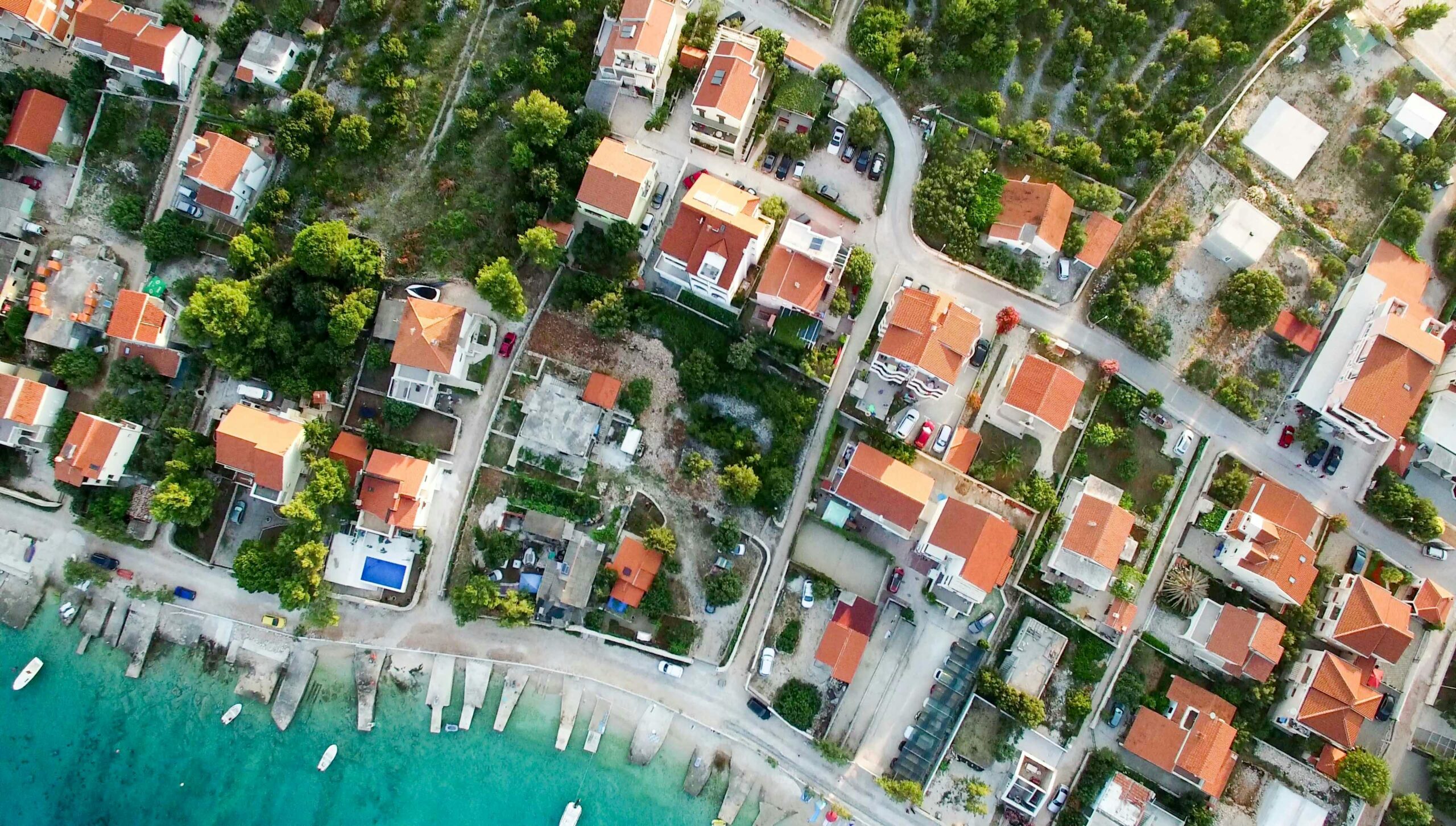
In a significant transformation that reflects the evolving landscape of Silicon Valley real estate, a sprawling Silicon Valley tech campus that’s been home to GoPro has been sold, with the new owners ready to build housing on the property. The $102 million sale of GoPro’s San Mateo headquarters represents a landmark shift from commercial office space to residential development, highlighting both the challenges facing the office market and the urgent need for housing solutions in the Bay Area.
The Historic Campus Transaction
Harvest Properties and Stockbridge Capital Group teamed up to buy Clearview Business Park in San Mateo for $102 million, marking one of the most significant office-to-residential conversions in recent Silicon Valley history. A 22-acre site at 3000-3155 Clearview Way that overlooks State Route 92 in San Mateo will be transformed from a 379,615-square-foot office building that is now home to GoPro into a residential community designed to address the region’s housing shortage.
The transaction represents more than just a real estate deal—it symbolizes the broader transformation occurring across Silicon Valley as developers and investors grapple with changing work patterns, declining office demand, and persistent housing shortages. The sprawling Silicon Valley business park that’s home to wearable camera company GoPro is set to be turned into single-family homes, as real estate investors strategize how to contend with record office vacancy rates and a nationwide housing crisis.
Campus History and Legacy
The Clearview Business Park carries significant corporate history that spans multiple decades and major technology companies. Originally constructed in 1973, the campus previously served as Visa International’s headquarters before undergoing its most recent transformation. GoPro moved in in 2011, establishing its corporate presence in the facility that would serve as its headquarters for over a decade.
Located at 3000–3155 Clearview Way, the hilltop property currently includes six Class A office buildings, surface and structured parking, and is partially leased to GoPro, which occupies the space through 2026. This timeline provides a clear transition period for the action camera company while allowing the new owners to plan and execute their residential development strategy.
The campus’s evolution from Visa’s international headquarters to GoPro’s home base, and now to future residential community, reflects the dynamic nature of Silicon Valley real estate and the changing needs of both corporations and communities in the region.
Ambitious Housing Development Plans
The new owners have outlined ambitious plans that will completely transform the character of the property. Preliminary intentions for the site are to demolish the existing office buildings and construct up to 225 townhomes, bringing new housing to a region desperate for residential options. Harvest plans to re-entitle the 22-acre property as a for-sale residential community, which will include affordable housing among its 225 townhomes and single-family homes.
The development will represent a rare type of housing project in the Bay Area. A $102 million hilltop campus sale in San Mateo, CA, is paving the way for a rare low-density housing development. This approach contrasts with the high-density apartment and condominium projects that typically characterize new construction in the region, offering a different housing option for Bay Area residents.
The real estate firm claims the new residential development will include 15% of affordable housing, addressing local requirements and community needs for housing accessibility. This affordable housing component ensures that the development will serve multiple income levels rather than exclusively catering to high-end buyers.
Market Context and Timing
The GoPro headquarters conversion occurs within a broader context of significant changes in the Bay Area real estate market. The timing reflects both the challenges facing office real estate and the opportunities presented by housing demand. Harvest Properties and Stockbridge purchased the 379,615-square-foot Clearview Business Park in San Mateo, California, in an off-market transaction, suggesting strong interest in the property despite broader market uncertainties.
The off-market nature of the transaction indicates sophisticated buyer interest and seller motivation to avoid public marketing processes. The seller was Goldman Sachs Asset Management, which acquired the business park from Hines, showing how institutional investors are adapting their real estate portfolios to changing market conditions.
The sale price and development plans reflect confidence in the residential market despite ongoing economic uncertainties. The substantial investment required for demolition and new construction suggests that developers see strong long-term demand for housing in the San Mateo area.
Transition Timeline and Corporate Impact
The conversion timeline accommodates GoPro’s ongoing operations while enabling the redevelopment process. Harvest and Stockbridge are expected to demolish the six office buildings at 3000–3155 Clearview Way. Several of those buildings are leased to GoPro through 2026. This arrangement provides the action camera company with sufficient time to relocate its operations and find alternative facilities.
For GoPro, the transition represents both an ending and a new beginning. The company has occupied the San Mateo facility for over a decade, building its corporate culture and developing many of its innovative products within these walls. The move will likely prompt internal discussions about future office needs, remote work policies, and corporate real estate strategies.
The timing aligns with broader trends in corporate real estate, where many technology companies are reassessing their space requirements following the pandemic-driven shift toward hybrid and remote work models. GoPro’s lease running through 2026 provides time for strategic planning about future workspace needs.
Regional Housing Impact
The conversion of GoPro’s headquarters represents a significant addition to the Bay Area’s housing stock. With 225 planned residential units on a 22-acre site, the development will provide housing options in a market characterized by severe shortages and affordability challenges.
The San Mateo location offers strategic advantages for residents, including proximity to major employment centers, transportation infrastructure, and recreational amenities. The hilltop setting provides natural beauty and privacy while maintaining accessibility to the broader Bay Area region.
The affordable housing component addresses regulatory requirements while contributing to community diversity and economic inclusion. At 15% of the total units, this represents approximately 34 affordable homes within the broader development.
Development Challenges and Opportunities
Converting a corporate campus to residential use presents both significant opportunities and complex challenges. The existing infrastructure, including parking, utilities, and site access, will require substantial modification to accommodate residential needs. The demolition of existing buildings and construction of new homes represents a major undertaking that will likely span several years.
Environmental considerations, zoning changes, and community approval processes will require careful navigation. San Mateo’s planning and approval processes will need to accommodate this transition from commercial to residential use, potentially setting precedents for similar future conversions.
The developers’ experience and financial resources suggest capability to manage these challenges effectively. The partnership between Harvest Properties and Stockbridge Capital Group combines residential development expertise with institutional capital resources necessary for large-scale projects.
Broader Market Implications
The GoPro headquarters conversion signals broader trends in Silicon Valley real estate that extend beyond individual transactions. The willingness of developers to invest $102 million in office-to-residential conversion demonstrates confidence in long-term housing demand despite current market volatility.
Similar conversions may become more common as office demand remains uncertain and housing needs persist. The success or failure of this project will likely influence future decisions about office property conversions throughout the Bay Area.
The project also reflects changing corporate real estate strategies, where companies increasingly view real estate as flexible resources rather than permanent investments. This shift enables more efficient capital allocation while creating opportunities for residential development.
Community and Economic Development
The residential conversion will fundamentally change the character of the Clearview Way area, transforming it from a corporate campus environment
to a residential community. This change will affect local businesses, traffic patterns, and community services as the area adapts to serve residential rather than commercial users.
The addition of 225 residential units will bring new families and individuals to San Mateo, potentially supporting local schools, retail businesses, and community services. The economic impact extends beyond construction jobs to include ongoing residential spending and property tax revenues.
Local infrastructure will need to adapt to serve residential rather than commercial users, potentially requiring improvements to utilities, traffic management, and community services. These adaptations represent both challenges and opportunities for local government and service providers.

Conclusion
The conversion of GoPro’s San Mateo headquarters to residential housing represents a significant milestone in Silicon Valley’s evolving real estate landscape. GoPro’s San Mateo headquarters will be redeveloped into 225 residential units by Harvest Properties and Stockbridge, creating new housing opportunities while addressing changing market demands.
This transformation reflects broader trends affecting commercial real estate, corporate space needs, and housing development throughout the Bay Area. The project’s success will likely influence future conversions and development strategies as the region continues adapting to post-pandemic economic realities.
For GoPro, the transition marks the end of an era while potentially enabling more flexible and efficient operations. For the San Mateo community, the development represents new housing opportunities and community growth. The project demonstrates how adaptive real estate strategies can address multiple challenges simultaneously, converting underutilized commercial space into needed residential housing while generating economic benefits for all stakeholders involved.





